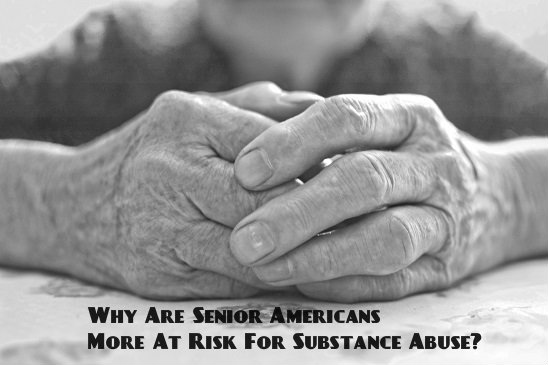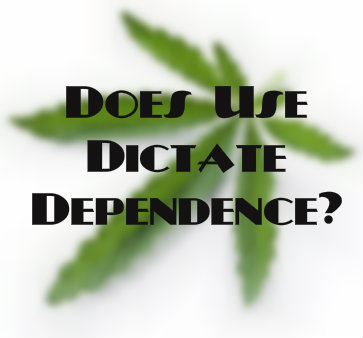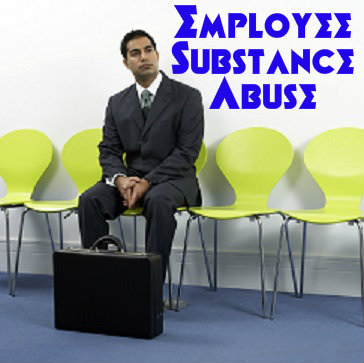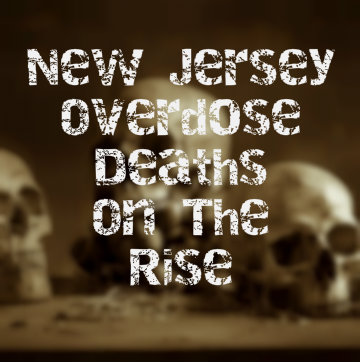Attention deficit hyperactivity disorder, or ADHD, is a common behavioral disorder in childhood. If you have a child with ADHD you are far from alone. Many kids use medication as part of the treatment for ADHD and there have been some concerns that these drugs could lead to later problems of substance abuse. Whether ADHD medications cause an increased risk for later addiction is not fully known, but what is certain is that you as a parent have the biggest influence over your child’s choices.
ADHD Treatment And Medications
 Experts agree that the best way to treat the symptoms of ADHD, which include hyperactivity, inability to focus or concentrate, and impulsive behaviors, is with both therapy and medication. Using drugs alone is not the best solution to helping kids with ADHD. When they learn to modify their behaviors and are given medications to help them better focus, they have the best odds of success.
Experts agree that the best way to treat the symptoms of ADHD, which include hyperactivity, inability to focus or concentrate, and impulsive behaviors, is with both therapy and medication. Using drugs alone is not the best solution to helping kids with ADHD. When they learn to modify their behaviors and are given medications to help them better focus, they have the best odds of success.
The medications that are used to treat ADHD are stimulants. Although it may seem counterintuitive, these stimulants actually help children to focus, to concentrate on one thing at a time, and to be able to control impulses. There are different kinds of stimulants used for ADHD, including Ritalin, Concerta and Adderall, among others. Children needing one of these drugs may have to try a few before finding the right one and the right dose that maximizes benefits while minimizing side effects.
Will ADHD Medications Cause Future Drug Abuse?
There has been controversy surrounding the use of stimulant medications to treat ADHD in children, but nothing has yet outweighed the benefits that these drugs have given kids. Some claim that kids are overmedicated and the drugs can cause lasting harm, although there is no evidence for this. One very real problem is abuse of ADHD prescriptions. It is not uncommon for teens and college students to use these drugs (which are mostly amphetamines) in large quantities to stay up late for studying and writing papers. This abuse can definitely lead to addiction.
Another controversy has been the fear that even the use of ADHD medications by kids following a doctor’s instructions could lead to future addiction. A few studies have made this connection, but have failed to show whether it was conclusively the drug or other factors that led to later drug abuse. A more recent review of these kinds of studies failed to find real and substantial evidence that ADHD drugs cause a child to abuse drugs or become addicted to drugs later in life.
The review included 15 separate studies and more than 2,000 participants. The result was that being medically treated for ADHD has no connection to future drug abuse. It neither increases nor decreases the risk of drug addiction. An interesting finding is that simply having ADHD can increase a child’s risk of future drug abuse; it seems likely that treating the disorder could therefore reduce the risk.
Good News For Parents Of Children With ADHD
The good news for parents of children with ADHD is that stimulant medications are largely helpful. As long as there are no serious or disruptive side effects the drugs can help kids focus in school, get along with peers better, and be more successful. The risk of developing substance abuse problems later in life is not related to medication.
In fact, what all experts know is that parents’ influence and behaviors is the biggest determining factor in whether a child abuses drugs. Talk to your children about drug abuse and develop a healthy relationship and you can steer them in the right direction.
Read More About Mental Health, Teens And Addiction
13 Jun 2014
Addiction On The Job
Drug addiction is a disease that takes over every aspect of life, from relationships and home life to job performance and career. Struggling with addiction, while also trying to maintain a position at work is a big challenge. You probably have many concerns and questions: Do my coworkers and my boss know? If I take time off for treatment will I lose my job? What about drug testing at work? Getting care for your addiction and getting well should be your top priority. However, you should also consider how it may impact your job.
Does Everyone At Work Know About My Addiction?
 It is not unusual to feel ashamed or embarrassed about having a substance abuse problem. You probably want to keep your addiction a secret from your coworkers and your boss, but the signs might be obvious. While many addicts are good at hiding their problem, there is a real possibility that everyone does know, or at least suspects.
It is not unusual to feel ashamed or embarrassed about having a substance abuse problem. You probably want to keep your addiction a secret from your coworkers and your boss, but the signs might be obvious. While many addicts are good at hiding their problem, there is a real possibility that everyone does know, or at least suspects.
If you have been actively trying to hide your addiction, this should be a red flag that you really do have a problem and need to seek treatment. It may be embarrassing to admit to your struggle, but your health and well-being are more important. If you haven’t yet sought help, consider inquiring with your company’s human resources department about an employee assistance program (EAP). If there is an EAP available, you can use it to get confidential help and resources for addiction treatment.
How Can I Face Going Back To Work After Rehab?
Getting help is your first step toward the rest of your life in sobriety. Making use of your company’s EAP you can find addiction treatment that works for you. You may even be able to attend outpatient treatment in the evenings and on weekends and not miss work. It is important that you understand your limits, though. If you are unable to resist the urge to keep using, you may need to go to a residential rehab facility.
If you are worried about being discriminated against because of your addiction, know your rights. The Americans with Disabilities Act does not protect you if you are still abusing illegal substances. However, if you are no longer using and are seeking treatment, you cannot be discriminated against in the workplace. Addiction is a disease and as long as you are getting treated for it, you cannot be punished at work.
While you may not be discriminated against officially, you may still feel that you are being subtly mistreated when you return to work after completing addiction treatment. You may feel stigmatized by your coworkers or feel that they no longer trust you or that they are excluding you. Sometimes these behaviors result from a genuine ignorance, as your coworkers may not have any experience with addiction. If you feel comfortable doing so, offer to discuss the situation with a curious coworker. This may help your reintegration into the workplace.
Another issue with going back to work is the possibility of relapsing. Going back to the job can be stressful and turning to drugs is your natural response to stress. Before returning to the workplace, be sure you are ready and have a plan in place for resisting the urge to use again. This may mean having loved ones ready to support you when you feel like using or having a support group to attend. The most important thing is your health. Work is important too, but you won’t be able to do your job fully until you have taken care of yourself and your recovery.
Call Us Now – If You Or A Loved Have Rehab Questions Or Need Addiction Help!
11 Jun 2014
Blocking Memories To Heal From Addiction?
Addiction is a complex disease of the brain that ties people to chemical substances and destroys lives if left untreated. Unlike many physical illnesses, healing from addiction has never been straightforward. Researchers have worked hard to understand this disease, and, as our understanding has evolved, we have come to learn that memory plays an important role in how addiction takes over the brain.
Addiction And The Brain
 Your brain contains a reward system, which gives you a pleasurable feeling when you do or experience something positive. For instance, when you get a hug from someone you love, this reward system causes a chemical called dopamine to be released in your brain. Dopamine makes you feel good. Drugs act like a big switch that turns on a flood of dopamine—far more than is released during normal, pleasurable activities.
Your brain contains a reward system, which gives you a pleasurable feeling when you do or experience something positive. For instance, when you get a hug from someone you love, this reward system causes a chemical called dopamine to be released in your brain. Dopamine makes you feel good. Drugs act like a big switch that turns on a flood of dopamine—far more than is released during normal, pleasurable activities.
The powerful high experienced with drug use often leads to more drug use. Over time, your brain will respond by decreasing the number of receptors for dopamine. This means you need more of the drug to get any kind of pleasurable feeling and when you don’t get it, you feel terrible. This cycle of withdrawal, cravings and relief are centered in the brain and lead to addiction.
Addiction And Memory
As modern research is beginning to discover, the changes to the reward system are not enough to fully explain addiction. Addiction also involves memories. Every time a person takes a drug and gets a flood of dopamine, the brain makes a strong memory associated with that high. Often connected to this memory is what led the person to use the drug in the first place: an emotion, a stressful situation or another memory.
It turns out that these memories are the key to why drug addiction is so hard to overcome. Addicts quit over and over again, but relapse and come back to drug use because of memories. Even after years sober, an addict may have a memory of drug use triggered by an external factor. This could be a place where he used drugs in the past, or a person with whom he used, or even just the feeling of stress or fear that he long ago associated with drug use.
Memories are tied to learning, and addicts have learned when and in which situations to use drugs. This makes it very difficult not to relapse in the presence of these learned triggers.
Blocking Memories To Help Treat Addiction
With the knowledge of the role that memories play in addiction and relapse, experts are trying to develop treatments that block the memories that trigger drug or alcohol use. Researchers at UC San Francisco have discovered a molecule that could be manipulated to do just that. The molecule is part of a pathway in the brain that signals memories related to addiction.
Work on blocking this pathway in rats is showing great promise for treating humans with addiction. The technique targets specific memories as opposed to blocking out memories without discretion.
The potential for being able to help recovering addicts avoid relapse by blocking memories is promising and hopeful. For addicts who have been clean for years, a relapse is still possible thanks to these powerful memories. It can be incredibly frustrating to be unable to resist a craving, but with more research and understanding of addiction and the brain, we may be able to break the hold drugs have on addicts.
Learn More About Addiction Recovery Today!
The phrase older and wiser suggests that as a person ages they learn a lot about how to deal with life. Experience is a profound teacher. However, it’s also true that as a person enters their golden years they are entering new territory. The retirement years are full of all kinds of changes and challenges. Sometimes there are so many of them that seniors are left scrambling for a way to cope.
Older People And Life Challenges That Effect Drug Abuse
 The American Geriatrics Society reports that older adults may be more apt than others to form a substance addiction by virtue of the many life challenges they encounter. Loneliness, grief, lack of purpose, boredom and chronic pain confront seniors with full force. As many as 20 percent of senior citizens msuse or abuse their prescription drugs or alcohol.
The American Geriatrics Society reports that older adults may be more apt than others to form a substance addiction by virtue of the many life challenges they encounter. Loneliness, grief, lack of purpose, boredom and chronic pain confront seniors with full force. As many as 20 percent of senior citizens msuse or abuse their prescription drugs or alcohol.
Alcohol – Most Abused Substance By Seniors
The substance most often abused by seniors is alcohol, with 60 percent of addiction treatment admittances for older adults relating to alcohol use. According to the Substance Abuse and Mental Health Administration (SAMHSA), 5.5 million seniors struggle with an alcohol use problem. This is in part because alcohol is a socially acceptable mode of self-medication.
But for seniors, drinking too much alcohol can have serious consequences. The truth is that alcohol affects older bodies more than younger ones. The senior’s body is slowing down in every way, including metabolism. That means that alcohol is processed much more slowly in an older person’s body. Because of this the National Institute on Alcohol Abuse and Alcoholism recommends that adults age 65 or above consume no more than one alcoholic beverage per day.
Older People Abusing Prescription Drugs
Prescription drugs are another source of potential abuse for seniors. To begin with, senior citizens are prescribed more medication than any other age group of Americans. But just as with alcohol, medications are also metabolized more slowly by older bodies.
Sedatives (barbiturates, diazepam, chlordiazepoxide) used to help older patients sleep are highly addictive. These medications tend to store up in fat deposits which make their effects even longer-lasting in older bodies which typically carry more fat. This is no small problem with the diazepam drug Valium prescribed to 100,000 older Americans annually.
Seniors Abusing Illegal Substances At A Greater Rate?
More people over age 50 are using illegal, illicit drugs. SAMHSA reports that treatment admittances for patients over 50 addicted to illegal drugs doubled and has continued to rise.
The good news in all of this is that when addiction forms late in life, with intervention and treatment there is hope for recovery.
See That There Is Hope For Recovery For YOU!
If You Or Your Elderly Loved One Need Help With Drug Or Alcohol Abuse – Call Us Now – We Are Here To Help!
26 May 2014
Marijuana Habits May Dictate Dependence
If scientists can develop an understanding of how a casual user sometimes becomes an addict while others do not, they may be more equipped to prevent addiction. Understanding how casual marijuana experimentation turns into addiction may help in prevention and intervention strategies, in addition to shaping public policy. A recent study identified behavior patterns that may determine whether a person develops an addiction to marijuana.
 The study, which was led by Peggy van der Pol of the Trimbos Institute of the Netherlands Institute of Mental Health and Addiction, suggests that theories about whether increased levels of the psychoactive ingredient delta-9-tetrahydrocannabinol (THC) can influence addiction may not be relevant. With varying potencies of THC available in marijuana, the researchers wanted to see whether potency, habits of the user or both determined the likelihood of them becoming addicted.
The study, which was led by Peggy van der Pol of the Trimbos Institute of the Netherlands Institute of Mental Health and Addiction, suggests that theories about whether increased levels of the psychoactive ingredient delta-9-tetrahydrocannabinol (THC) can influence addiction may not be relevant. With varying potencies of THC available in marijuana, the researchers wanted to see whether potency, habits of the user or both determined the likelihood of them becoming addicted.
Some scientists have argued that even when THC is more potent users may compensate by inhaling less. However, the authors say there is a much more relevant predictor.
While smokers of more potent pot receive more THC now than users of older generations of marijuana, the style of smoking is a better predictor of which users are likely to become dependent. Van der Pol explains that while every drug carries risk, the more potent forms of marijuana cause the user to take in more THC.
How Is Dependence Developed?
Other studies have focused on frequency of use when examining how dependence developed, as well as THC levels. Van der Pol’s team looked at data from 98 young adults enrolled in a long-term study on regular marijuana use in the Netherlands. The users were recruited from cannabis dispensing coffee shops, as well as through referrals. The participants all reported using marijuana at least three days per week in the previous year. One in three of the participants met criteria for dependence at baseline. The participants were mostly men and were an average age of 23.
Eighteen months after recruitment, and at another follow-up point at three years, the participants were interviewed about their cannabis use, and were even asked to smoke during the interview.
The researchers documented the specific behaviors each participant demonstrated, from rolling their joints to how often they puffed on the joint. To provide a picture of regular behaviors, the participants were asked to bring their own cannabis and roll their own joints.
The smokers who used more potent pot containing higher concentrations of THC did not roll weaker joints. Instead, they used more pot in each joint when compared to users of less-potent marijuana.
The potent pot users did inhale less smoke and had a slower pace of smoking when compared with their peers. However, these adjustments weren’t sufficient to compensate for the higher level of THC in the marijuana.
Instead of THC exposure, the study results showed that only behaviors specific to smoking were predictors of dependence. How many puffs a smoker took, and the amount they smoked, were the only strong predictors of dependence at three years following the initial examination.
The study’s findings may have an immediate impact on how users are educated about marijuana dependence. New users may be exposed to a stronger potency of marijuana and consume high levels of THC.
Find Out If Marijuana Legalization Is Leading To Increased Use
Two trends in substance use are affecting the bottom line among small businesses. One is a significant increase in the abuse of prescription painkillers. The other is the increased use of marijuana as a result of increased deregulation.
According to a survey conducted by Employers Holdings Inc., one out of 10 small businesses report having employees show up to work while under the influence of at least one controlled substance, with lost productivity and potential insurance costs affecting the bottom line of the business.
Many companies require that employees provide a clean urine or blood sample both at hiring and at the discretion of the employer for random testing. However, in some cases, the employee may arrive at work visibly affected by a substance.
Prescription Drug Use
 Opioid misuse has been on the rise. The U.S. Centers for Disease Control and Prevention report that more overdose deaths are now recorded for prescription opioids than for heroin or cocaine.
Opioid misuse has been on the rise. The U.S. Centers for Disease Control and Prevention report that more overdose deaths are now recorded for prescription opioids than for heroin or cocaine.
Prescription drug abuse often begins with a legitimate pain problem, often resulting from a serious injury or chronic disease. The patient may not receive adequate warnings, or they may not exercise the necessary caution in avoiding addiction to the drug.
In other cases unlocked medicine cabinets provide an opportunity for forgotten pills to be pilfered. Opioids can produce the same high as heroin, and they are a popular choice for experimentation. Many users mistakenly believe that because the drugs are obtained through a prescription from a doctor they aren’t as dangerous as street drugs.
Instead, experts say, the use of opioids can be just as dangerous as street drugs. Common reactions include a racing pulse or stroke. In some cases users may combine the drugs with other pills to make a unique cocktail and significantly increase the likelihood that they will experience negative side effects.
One potential danger of using opioids is that when a user runs out of opportunities to obtain prescription opioids from the medicine cabinets of friends and relatives the addiction may be fully developed. Buying pills on the street can be very expensive, costing $80 to $100 per pill. The remedy, in too many cases, is to start using heroin. Heroin is available and cheap, compared to prescription painkillers.
Marijuana Use Increasing
The increasing legalization of marijuana is also becoming a challenge for employers. Many don’t believe that their employees are able to work safely while under the influence, and are struggling to adequately prevent the substance from impacting their business, the safety of their employees and those they interact with on any given day.
With states beginning to allow the possession and use of marijuana, the impact is being felt by small businesses. In Colorado, where marijuana sales are booming, employers are scrambling to compensate for the impact the drug can have on their employees and their businesses.
More than half of employers surveyed even mentioned over-the-counter medications as a particular danger to employees and those around them. Three-quarters of the employers agreed that marijuana, prescription painkillers, alcohol and illicit narcotics presented a danger to their employees.
The survey was conducted by International Communications Research, who interviewed 502 small businesses that were nationally representative of small businesses that have fewer than 100 employees.
Find Out If Some Businesses Reward Drug Abuse
09 May 2014
Overdose Fatalities On The Rise In New Jersey
 The National Safety Council (NSC) is a non-governmental, not-for-profit agency dedicated to promoting health and protecting life in the United States. The organization reports on and works to improve conditions in homes, at work and on the road. A recently published NSC report finds that drug and alcohol overdoses are the number one cause for accidental death in New Jersey – more than car accident fatalities.
The National Safety Council (NSC) is a non-governmental, not-for-profit agency dedicated to promoting health and protecting life in the United States. The organization reports on and works to improve conditions in homes, at work and on the road. A recently published NSC report finds that drug and alcohol overdoses are the number one cause for accidental death in New Jersey – more than car accident fatalities.
Like the rest of the nation, New Jersey recognized the wave of prescription drug abuse and responded strongly. State, along with federal officials, clamped down on access to prescription drugs. Making prescription drugs harder to get was seen as one way to reduce fatalities.
How Is The Problem Being Handled?
While efforts to place tighter controls has been effective to some extent, in another it may have only renamed the problem. Limited access has led to the street value of pills costing somewhere around $40 a piece, so many people simply switched to heroin, which is from the same family of drugs as prescription painkillers. It’s more powerful and less costly than it’s ever been, allowing drug abusers to switch to heroin when prescription pills are out of reach.
Substance abuse experts say that around 800,000 people in the Garden State have a drug or alcohol problem, yet just 10 percent ever ask for help. One clear way to bring down the number of accidental overdoses is to do a better job of convincing citizens to get help to break free of substance abuse.
The NSC says that the surge in overdose fatalities combined with the number of falls by senior citizens makes New Jersey homes the number one danger zone. New Jersey is not alone, however. Alcohol and drugs were reported as the leading cause of death in 20 states across the nation.
Federal-level drug laws in the U.S. prohibit the sale or use of the plant-based, mind-altering drug marijuana. Despite this fact, as of 2014, the drug has been decriminalized or legalized in roughly a third of all U.S. states, and the trend toward decriminalization and/or legalization may continue in future years. In a study published in 2012 in the journal Drug and Alcohol Dependence, researchers from Columbia University investigated the question of whether decriminalization or legalization in all 50 U.S. states would lead to a rise in the diagnosis of cannabis use disorder (the combined term for cannabis abuse and cannabis addiction).
The Laws Of Marijuana
 The federal status of marijuana is mandated by a law called the Controlled Substances Act, which categorizes drugs and medications according to both their medical usefulness and their potential to trigger cases of substance abuse or substance addiction. Marijuana is classified as a Schedule 1 substance; substances with this designation officially have no verified usefulness in a medical context and come with substantial risks for abuse and addiction in all users. It’s important to note that federal law distinguishes marijuana from its main active ingredient, THC (tetrahydrocannabinol). In limited circumstances, doctors can use standardized THC products for such purposes as nausea control, pain relief and appetite encouragement. However, since the THC content of marijuana can vary widely, the allowance for THC use does not extend to marijuana use.
The federal status of marijuana is mandated by a law called the Controlled Substances Act, which categorizes drugs and medications according to both their medical usefulness and their potential to trigger cases of substance abuse or substance addiction. Marijuana is classified as a Schedule 1 substance; substances with this designation officially have no verified usefulness in a medical context and come with substantial risks for abuse and addiction in all users. It’s important to note that federal law distinguishes marijuana from its main active ingredient, THC (tetrahydrocannabinol). In limited circumstances, doctors can use standardized THC products for such purposes as nausea control, pain relief and appetite encouragement. However, since the THC content of marijuana can vary widely, the allowance for THC use does not extend to marijuana use.
Eighteen states in the U.S. (as well as the District of Columbia) have passed laws that make it possible to prescribe medical marijuana for their patients. Essentially, these laws decriminalize marijuana use in a medical context and take away the legal penalties otherwise associated with possession or consumption of the drug. In addition, both Colorado and Washington State have gone beyond decriminalization for medical marijuana and passed laws making it permissible for adults to possess and use small amounts of the drug in a recreational context not based on perceived medical need. These laws make marijuana use legal instead of merely decriminalized. However, in terms of ultimate jurisdiction, none of the state laws regarding medical marijuana or recreational marijuana take precedence over federal law.
Marijuana Abuse And Addiction
Like any other classic substance of abuse, marijuana produces rewarding sensations in the brain’s pleasure centers and, when used repeatedly, also makes long-term changes in brain chemistry that support the onset of physical dependence and addiction. According to figures compiled by the National Institute on Drug Abuse, one-quarter to one-half of all regular users of the drug will ultimately develop a cannabis addiction and meet the terms for diagnosing cannabis use disorder. Significant numbers of occasional marijuana users will also get addicted. As a rule, teenagers are substantially more susceptible to the drug’s addiction-promoting effects than adults.
A Rise In Abuse And Addiction Rates?
In the study published in Drug and Alcohol Dependence, the Columbia University researchers used information gathered from a large-scale, nationwide project called the National Epidemiologic Survey on Alcohol and Related Conditions (NESARC) to explore the issue of how the passage of medical marijuana laws in all U.S. states might impact rates for the diagnosis of cannabis abuse and cannabis addiction. After analyzing the information from NESARC, the researchers checked their findings against recent figures gathered from another nationwide project, called the National Survey on Drug Use and Health, which explores drug use trends in all American adults and teenagers.
Using the results gathered from the National Epidemiologic Survey on Alcohol and Related Conditions, the researchers concluded that, compared to people living in states that have not passed medical marijuana laws, people living in states that have decriminalized the use of medical marijuana are more likely to use marijuana, and also more likely to experience cannabis-related problems with abuse and addiction. Using the results gathered from the National Survey on Drug Use and Health, the researchers again concluded that people in pro-medical marijuana states use marijuana more often than people living in other states. However, neither survey indicated that the overall percentage of people affected by cannabis abuse and addiction is higher in medical marijuana states than in non-medical marijuana states. Instead, the number of affected individuals apparently goes up because the increase in total users leads to a larger pool of individuals at-risk for developing problems.
The authors of the study published in Drug and Alcohol Dependence did not offer a reason for the increase in marijuana users in states that allow medical marijuana. Since diagnosable problems appear in a certain percentage of all occasional and regular marijuana users, it seems logical to assert that a spread of medical marijuana throughout the U.S. and a subsequent increase in marijuana users would lead to increased numbers of cannabis use disorder diagnoses. However, continual future research will be needed to prove or disprove this assertion.
Read The Early Numbers Show Strong Marijuana Sales In Colorado


